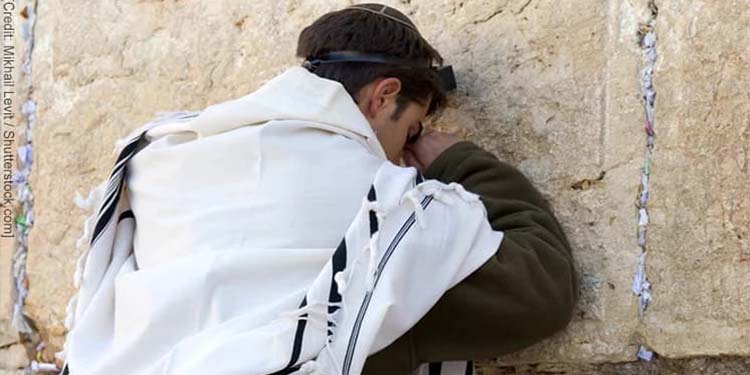We Will Rise Again
Yael Eckstein | September 20, 2023

“This is to be a lasting ordinance for you: Atonement is to be made once a year for all the sins of the Israelites.”
And it was done, as the Lord commanded Moses. — Leviticus 16:34
At sundown on Sunday, Sept. 24, my family and I will join Jews across the world in observing the holiest day on the Jewish calendar, Yom Kippur, the Day of Atonement. My devotions focus on this very holy day, a time when our attention is on receiving and giving forgiveness.
There is a story told about a great rabbi who would address God every night, saying, “God, I sinned today, but tomorrow I shall not sin again. I know I said this yesterday, but this time I really mean it.” He would say this every single evening! Every time he said it, he meant it no less than the day before.
This story resonates with me as we complete the High Holy Days with the observance of Yom Kippur, the Day of Atonement. Every year on this day, we repent for our past sins and determine to never repeat them. But who are we kidding? In all likelihood, we will probably repeat many of our misdeeds in the days and months ahead.
Even God knows that we will sin again. Why else would He prescribe Yom Kippur every single year? If He really thought that we would stick to all of our resolutions, there would be no need for an annual day of atonement as commanded by the Bible.
We Will Rise Again
King Solomon, the wisest man to ever live, wrote in the Book of Proverbs, “for though the righteous fall seven times, they rise again” (24:16). Note that Solomon did not say, “IF the righteous fall…” He said, “though the righteous fall…” In other words, the righteous will undoubtedly fall numerous times. However, that’s not what counts. What matters most is that “they rise again.”
God knows that we will stumble—year after year after year. Yet on Yom Kippur, we will rise again—we will regret our mistakes and reaffirm our commitment to be better—and that’s what matters most.
As we have said, the Hebrew word for “repentance” is teshuvah. However, teshuvah can also mean “repetition,” because repentance is something that we do over and over. Every time we return to the Lord, we get closer to Him and He is that much more a part of our lives.
The message of Yom Kippur is an empowering one. It teaches us that it is okay to fall, so long as we get back up again. We do not need to be perfect, just perfectly dedicated to trying again.
Your Turn:
Forgive yourself for past mistakes, no matter how many times you have repeated them or how likely you are to make the same mistakes again. Then take the message of Yom Kippur to heart, and “rise again.”
